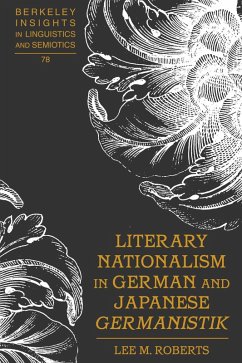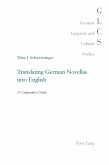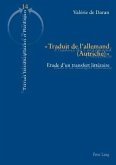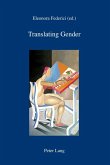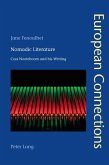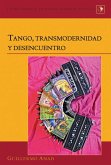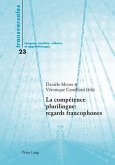Literary Nationalism in German and Japanese Germanistik traces the convergence of German and Japanese metaphors for national literary spirit through the academic study of the German language and literature in Germanistik. Early notions of a spiritual link to the national literary tradition allowed speakers of German to imagine their unity before the existence of the modern German state, but the concept for spirit also gained various nuances in the works of such writers as Johann Wolfgang von Goethe, the Brothers Grimm, E.T.A. Hoffmann, and Hermann Hesse. Moreover, throughout the nineteenth and first half of the twentieth century, scholars and thinkers increasingly equated literary spirit with the psychology of the German nation. Against the background of these developments, the slogans of university students who burned books of so-called un-German spirit in 1933 gained a particularly ominous meaning. Interestingly, for Japanese contemplating German literature in the late nineteenth century, the native idea of national literary spirit was one of many concepts that differed from their German counterparts. However, skilled writers and translators like Mori Ogai invested old words with new meanings, and by the 1930s Japanese scholars of Germanistik had not only documented the discourse on German national literary spirit but also deemed it synonymous with the spirit of Japan's own tradition.
Dieser Download kann aus rechtlichen Gründen nur mit Rechnungsadresse in A, B, BG, CY, CZ, D, DK, EW, E, FIN, F, GR, HR, H, IRL, I, LT, L, LR, M, NL, PL, P, R, S, SLO, SK ausgeliefert werden.

